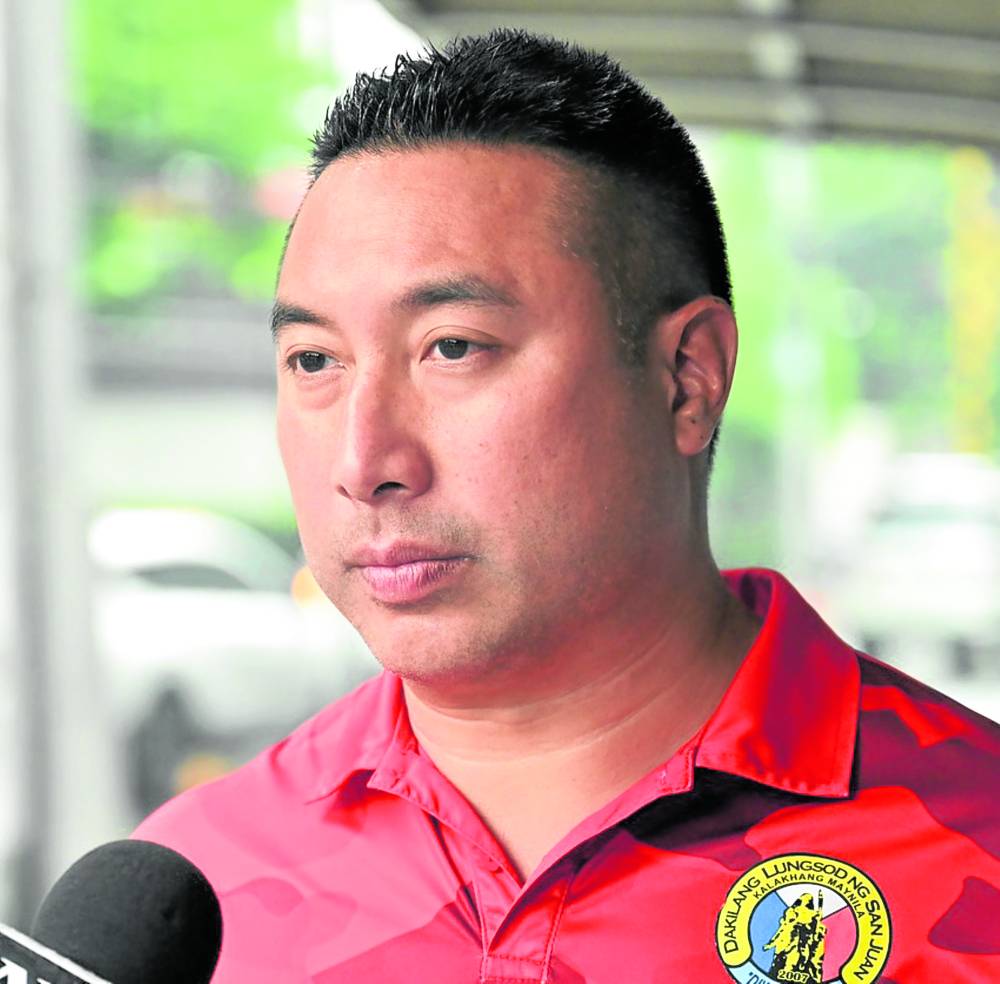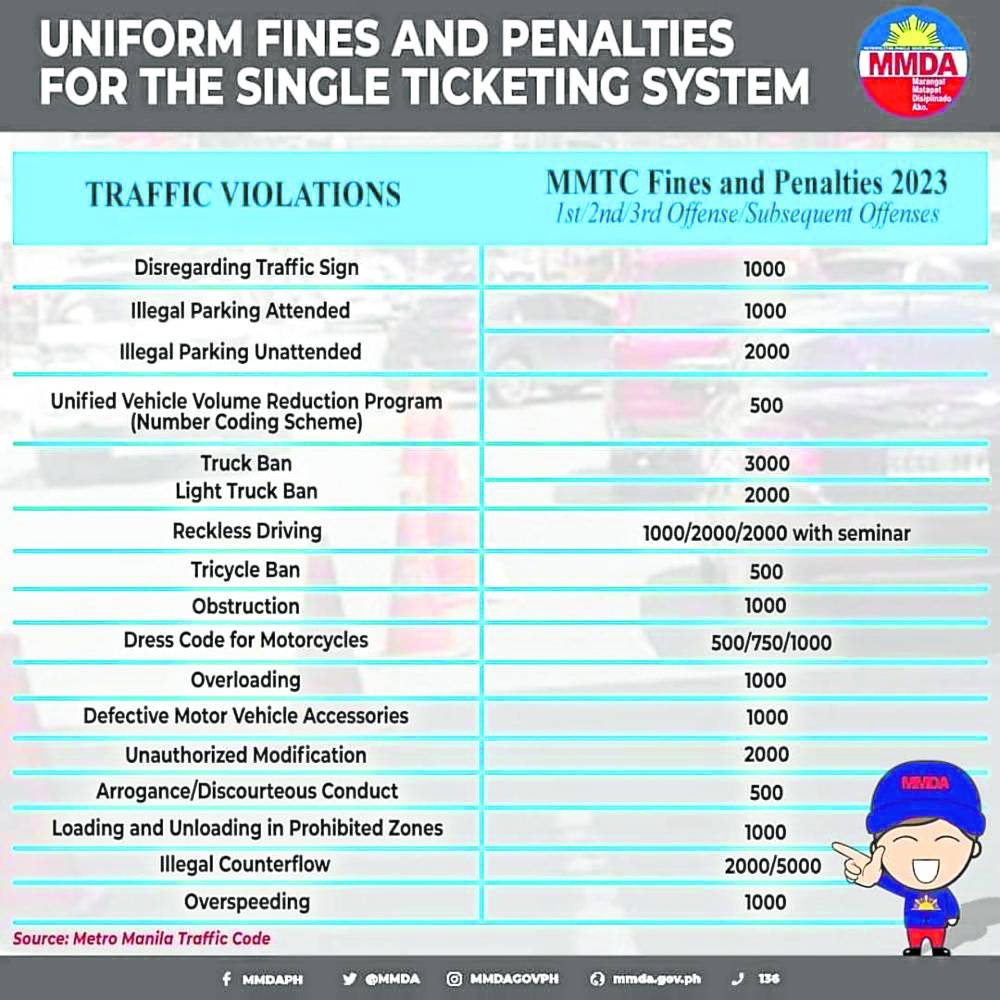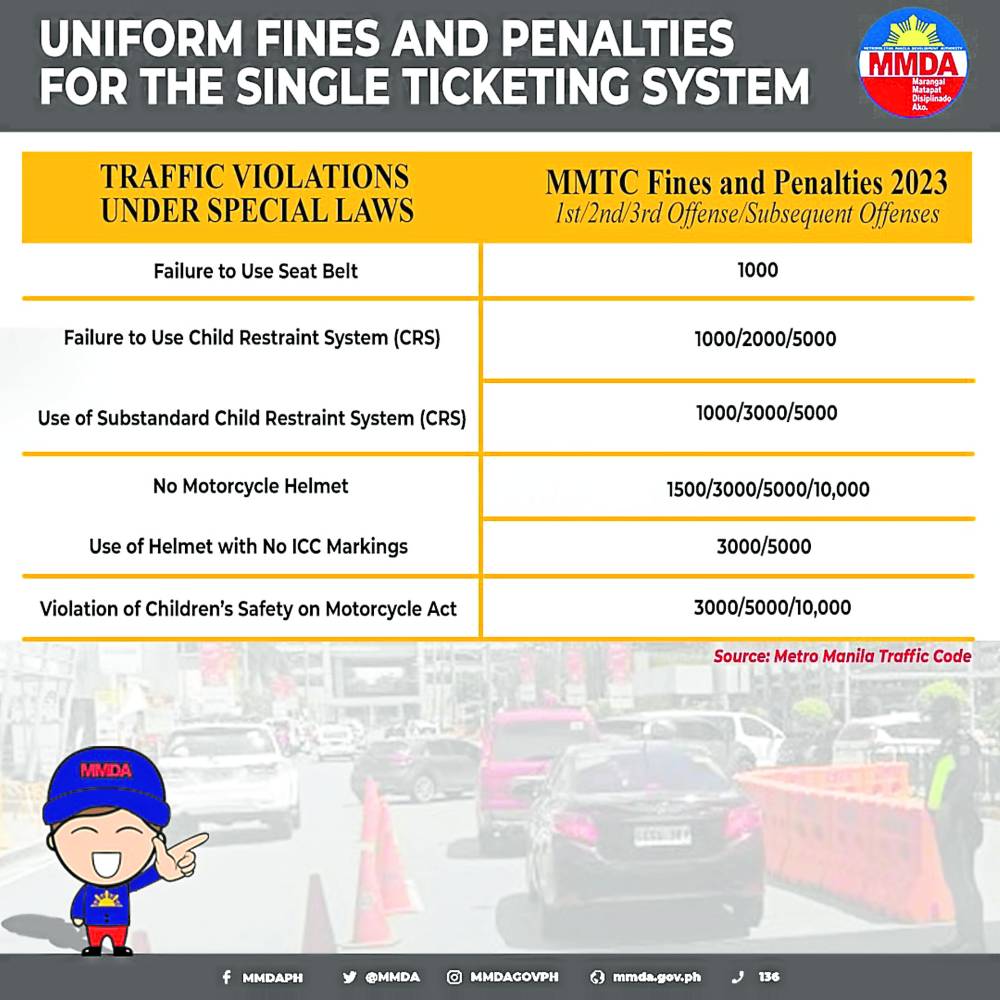7 NCR cities try single-ticket setup for traffic violations
The pilot run of the single-ticketing system for penalizing traffic violations in Metro Manila will begin on May 2 in seven cities, San Juan City Mayor and Metro Manila Council (MMC) president Francis Zamora said on Thursday.
“We will start with seven cities first so we can see what needs to be improved [so that] the implementation will be seamless for all the 17 LGUs (local government units),” Zamora said at a press briefing.
Among the LGUs included in the pilot test are Quezon City, Manila, Parañaque, Muntinlupa, Caloocan, Valenzuela and San Juan.
All the 17 mayors of the National Capital Region (NCR), together with the Land Transportation Office (LTO) and the Metropolitan Manila Development Authority (MMDA), signed a memorandum of agreement for the implementation of the single-ticketing program.
Common violations
Zamora said the deal would provide the MMC with access to LTO’s data, allowing them to monitor the traffic violations of drivers and track demerit points.
The Metro Manila Traffic Code, which is designed to harmonize traffic violations and penalties across cities in the capital region, defines the 20 common traffic infractions and the corresponding standardized fines.
The common violations identified in the traffic code include illegal parking; overloading; defective motor vehicle accessories; dress code violations; obstruction and disregarding traffic signs; number coding; truck bans and tricycle bans.
The rollout of the single-ticketing system in Metro Manila was nearly three decades in the making and Zamora said it would provide relief to motorists because their licenses would no longer be confiscated.
Real-time monitoring
Instead, enforcers would issue traffic violation tickets and the drivers have the option to pay their penalties through e-wallets and digital payment platforms.
MMDA acting Chair Romando Artes said traffic enforcers would be given handheld devices and would offer the apprehended motorists an option to pay their fines on the spot through a digital payment system.
“No cash will be given to the enforcer. They will just offer options to [the motorists] to pay right then and there through an e-wallet, GCash, Bayad Center or Landbank,” he explained.
Zamora noted that they would also train the traffic enforcers on the proper implementation of the new policy.
‘Big deal’
“It’s also a big deal that the license will no longer be taken and there is no reason to go to the City Hall. So the ticketing process is done, a ticket will be issued and that’s it. The motorist can leave, it’s up to him to decide if he wants to pay online, e-wallet or physically to City Hall,” Zamora said, adding that this would lessen the possibility of corruption.
Meanwhile, Artes said that the MMDA has bought body cameras that are linked to its command center in real-time, which it targets to distribute in other cities as well.
“Before the apprehension, MMDA officers would first inform the motorist that there is a body camera and that they are being monitored at the command center. That removes negotiations … and in effect, it lessens traffic congestion, speeds up the process and reduces dispute [between the enforcer and driver],” he noted.
Trial run
The MMDA is shouldering the cost of the hardware and other technical requirements needed for the rollout of the LGUs’ integration with the LTO’s Land Transportation Management System (LTMS) database.
Artes said Interior Secretary Benjamin Abalos Jr. would also push other regions to consider implementing a single-ticketing system to unify the penalties for traffic violators.
“When that happens, even the LGUs outside Metro Manila will be integrated into LTO’s system, in which case, they won’t need to confiscate licenses and the payment of fines would also be easier,” the official added.
The MMDA earlier said it would hold a trial run of the single-ticketing system in the first or second week of this month in selected LGUs after the capital region’s mayors approved the new Metro Manila Traffic Code on Feb. 1.


